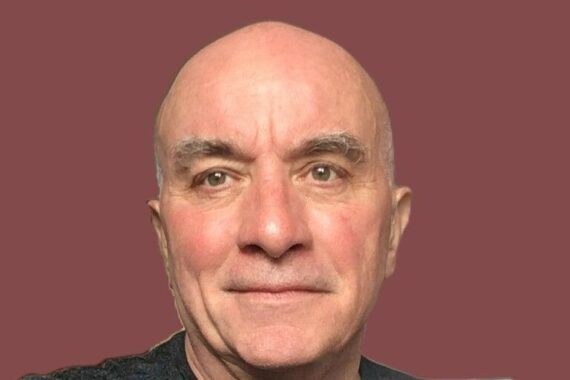In the midst of the GP collective action, it feels as though we are living through a pivotal moment in the profession. Historian Chris Holme takes a step back, and shares the account of a researcher whose findings transformed general practice in the early days of the NHS
Was there ever a worse time for general practice?
It’s a moot point but the early years of the NHS offer parallels which resonate today. The touchstone came in March 1950, when the Lancet published the results of a survey by Australian researcher, Joe Collings.
Collings was commissioned by the Nuffield Provincial Hospitals Trust to look at the state of general practice in the newly established NHS. He visited 55 practices in England and his report made for grim reading: ‘The overall state of general practice is bad and still deteriorating’ and in some cities, ‘at best…very unsatisfactory and at worst a positive source of public danger.’
He also noted that GPs were constantly being asked to do more work for less pay and concluded: ‘If the present trend continues, it must result in the elimination of general practice as an effective agency of medical care.’
The report triggered predictable outrage. Collings was vilified: for flawed methodology; for being too young (he was 31); for his ignorance of British general practice; and, with a large pinch of condescension, for being an Aussie. He did praise the hard work and good practice he witnessed, but the problems he highlighted long predated the NHS.
Public perception of British medicine had changed little since AJ Cronin’s 1937 novel The Citadel which achieved record sales and spawned a Hollywood blockbuster. In it, doctors were variously portrayed as able, committed, drunk or useless. Particular scorn was reserved for a clique of greedy and incompetent practitioners in Harley Street. It was based on Cronin’s earlier, and largely positive, experiences as a salaried GP for the Tredegar Workmen’s Medical Aid Society. It also helped shape Aneurin Bevan’s thinking for the NHS – Tredegar was his hometown.
The 1945 Labour Government set a deadline to have the NHS up and running in three years. All might have gone differently had the publicity for the new service not promised so much: the ‘family doctor’ was to be the central figure for the new NHS. It was to be a health-promoting service, rather than a disease treatment.
However, it didn’t create a single new nurse or doctor. Publicity leaflets carried a health warning that there would not be enough dentists available at the start – but there was no such caveat about doctors.
Meeting the colossal demand for objects – that is free spectacles and dentures for example – was relatively easy, thanks to the wartime command economy and the Ministry of Supply. Hearing aids were mass produced, copying the best available commercial design under the branding Medresco (after the Medical Research Council which evaluated them).
But manpower was a different problem, and it was gender specific. The vast majority of doctors had one small thing in common: female GPs were extremely rare.
Similarly, the idealised notion of the ‘family doctor’ was something of a misnomer. The 1911 National Insurance Act had only covered insured workers – overwhelmingly men. The main beneficiaries of the new NHS were hitherto excluded women, children, and older people. And they came in their millions to their GP surgeries to be treated for undiagnosed diseases, untreated prolapses and a myriad of other conditions.
GPs then formed the largest grouping in medicine but had no separate negotiating voice. Bevan was able to negotiate a separate agreement with hospital specialists through their surgical and medical colleges.
Collings noted huge variations in the quality of general practice – most practices then were single-handed with the surgery often in the GP’s home. There were also geographic variations. The worst practice he found was in the poorest areas, a reflection of Julian Tudor Hart’s later inverse care law.
London was not included. Collings did visit Scotland which he rated slightly more favourably in an appendix to his report.
Bevan’s vision of a ‘Promised Land’ had to be tempered by the realities of 1948, which began with the coldest winter in living memory and cuts in food rationing. It was a time of hope rather than expectation and the idea of a GP-centred health service was largely displaced by a hospital-based treatment service. Austerity remained the watchword of the 1950s when the health budget was reduced as a share of government spending – partly because after Bevan there was no seat for the health minister in Cabinet.
However, Collings’ report stimulated debate and reform. Other studies confirmed the thrust of his findings. What became the Royal College of General Practitioners was set up in 1952. Manchester and Edinburgh developed GP teaching practices attached to their medical schools. Ekke Kuenssberg, one of the early college leading lights, pioneered teaching workshops and GP vocational training. Earlier, he had put up Collings for three nights during his visit to observe Kuenssberg’s Edinburgh practice in Granton.
There was progress, albeit slow. Edinburgh University established the world’s first chair of general practice in 1961.
Meanwhile, whistleblower Collings returned to the USA to conduct further research at the Harvard School of Public Health. He actually knew what he was talking about – having previously worked as a GP in New Zealand and in public health in Manitoba. In 1954 he returned with his family to Australia… to set up a group practice in Melbourne where he developed a special interest in the health of older people.
Chris Holme is a freelance historian and former Reuters Foundation fellow in medical journalism.
Pulse October survey
Take our April 2025 survey to potentially win £200 worth of tokens














Thank you for this . Fascinating. I think the Citadel should be compulsory reading for all GP registrars.